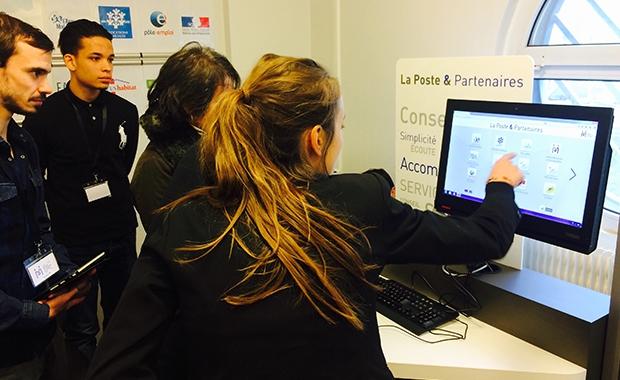The Neuhof neighbourhood has been subject to an urban regeneration programme for ten years now, and is one of the only neighbourhoods in France where all of the city’s policy initiatives are up and running. Mathieu Cahn, Vice-President of the Eurometropolis and Deputy Mayor of Strasbourg, wants to respond to “this feeling of abandonment that affects so many residents against this backdrop of public services withdrawing from local communities”. For Véronique Léautaud, Director of the Alsace Franche Comté Network Transformation and Support Services, “Just like businesses, public services are modernising to become more accessible, and it is no longer possible to ignore the digital world. For La Poste, the main objective is to modernise its network to make it more accessible, more personalised, and more digital in its retail outlets.”
Thus, the Strasbourg Lizé MSAP provides two digital hubs for its customers, as well as printers and scanners installed in a dedicated area. The aim is to help customers access services and get to grips with our partners’ digital tools.
Unique to this MSAP are the six civic service volunteers at hand to welcome users and point them in the right direction. Strasbourg City Hall and the French government are directly funding training and compensation for these volunteers, who are managed by FACE Alsace, a charity. They received more than one month’s training from the three partners whose services they are helping promote: Assurance Maladie (social security), Pôle Emploi (the Job Centre), and CAF (family benefits). The support they provide will be vital to the neighbourhood, according to Yves Seguy, Secretary General of the Bas-Rhin Prefecture, because, “Today, an increasing number of procedures are completed remotely, and it’s important that people get support from digital mediators. These young volunteers will facilitate these procedures”.

